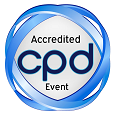Dr. Hossein Pakdaman
Shahid Beheshti University of Medical Sciences, Iran
Title: Biosimilars in treatment of multiple sclerosis in Iran
Biography
Biography: Dr. Hossein Pakdaman
Abstract
The estimated number of multiple sclerosis patients increased from 2.1 million in 2008 to 2.3 million in 2013. In Iran, the prevalence of multiple sclerosis increased from 45/100,000 in 2011 to 54.5/100,000 in 2013. In capital, multiple sclerosis prevalence had increased from 51.9/100,000 in 2008 to 74.28/100,000 in 2011. In fact, the incidence of multiple sclerosis significantly increased from 3.77 in 2007 to 5.68/100,000 in 2013, annually. Various reports show the significant increased economic burdens multiple sclerosis on patients, on their families, and on government.A biosimilar drug is a biologic medical product which is almost a matched copy of a reference "innovator" product that is synthetized by a different company. Biosimilars are a new class of drugs intended to offer comparable safety and efficacy to the original, off-patent biological.Indeed high expenses of many biological medicines has led to the development of biosimilars in Iran similar to other countries. Development of biosimilars are not feasible because of structural complexity, manufacturing process and the possible risk for immunogenicity. The main limitations with biosimilar are that, the two biosimilar have a different origin, the two biosimilars may have same therapeutic effect, may have different side-effects and hence require thorough testing.There several biosimilars that are prescribed for multiple sclerosis patients in Iran. In 2005, CinnoVexTM as the first biosimilar IFN-beta-1a was produced in Iran and is still available in the market. About 2/3 of patients with multiple sclerosis in Iran are on biosimilars. Of note, the efficacy and safety of such products were assessed and stablished in different experimental and clinical controlled studies.

